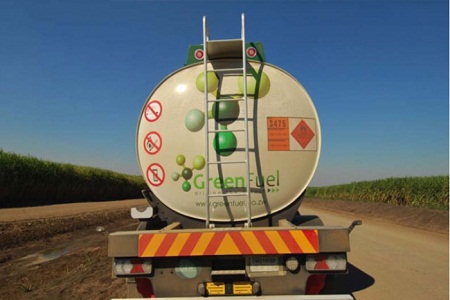Zimbabwe has increased the mandatory blending of ethanol with unleaded petrol from 10 percent (E10) to 15 percent (E10) with effect from last Saturday.
Gloria Magombo, Zimbabwe Energy Regulatory Authority chief executive (Zera), advised the public that the quality specification of E15 fuel conforms to the Standards Association of Zimbabwe Standard: ZWS964 Part 5.
"Fuel importers, wholesalers and retailers are required to comply with the petroleum (mandatory blending of anhydrous ethanol with unleaded petrol) (Amendment) Regulations published in the Statutory Instrument 147A of 2013," she said in a statement.
Magombo warned that wholesalers and retailers have up to 10 days to clear their current stock after which all licensees are expected to comply with the regulations.
She noted that her organisation will scale up monitoring and surveillance of all licensees in the petroleum sector to ensure compliance with these regulations and fuel quality standards.
"Ethanol blending contributes towards energy security of the country, reduces the fuel import bill, creates employment and increases potential for power generation," she said.
Zimbabwe – which introduced compulsory blending of five percent ethanol, a sugar-based bio-fuel with unleaded petrol, early this year - is expected to move to mandatory blending of E20 by the first quarter of 2014.
With the price of ethanol currently set at $0,95 per litre, it is expected that fuel prices will go further down from around $1,47 to approximately $1,42 by year end.
This comes after Zera recently said the country saved about $4 million every month in imports through mandatory blending, or about 10 percent of funds the southern African nation spends on fuel imports.
Sources in the energy sector and economists said that Zimbabwe spends between $40 million and $45 million on importing fuel every month.
Industry experts say the introduction of E15 is in line with global trends in the deployment of bio-fuels in countries such as India, Thailand, Latin America, USA, Europe and Australia where the minimum ethanol blending levels are at least five percent.
Benefits of ethanol blending include, among others, reduction in vehicle tailpipe emissions, improvement in the octane rating of fuel and energy security for the country.
Zera's position on ethanol also comes at a time when ethanol from Zimbabwe's Green Fuel is in huge demand from other regional countries, including South Africa.
It was recently reported that some Southern African Development Community (Sadc) countries are scrambling for the product and have approached Green Fuel with a view to sealing deals.
Green Fuel general manager Graham Smith said the company had been approached by Zambia, Malawi, Mozambique, Botswana and South Africa.
Smith said South Africa, which introduced mandatory blending, was "a key market hungry for energy".
Green Fuel is running with capacity to produce 120 million litres of ethanol a year.
"In the next seven years we would be producing 500 million litres of ethanol per year," said Smith.
Green Fuel's $600 million ethanol project resumed production of anhydrous ethanol in August for blending with unleaded petrol at its plant in Chisumbanje, two years after it went idle as government contested its ownership structures.
Production of ethanol at the plant was stopped in February 2011 over the company's shareholding which was not in sync with the country's indigenisation laws.
- dailynews
 Concern over Masvingo black market
Concern over Masvingo black market  Kenya declares three days of mourning for Mugabe
Kenya declares three days of mourning for Mugabe  UK's Boris Johnson quits over Brexit stretegy
UK's Boris Johnson quits over Brexit stretegy  SecZim licences VFEX
SecZim licences VFEX  Zimbabwe abandons debt relief initiative
Zimbabwe abandons debt relief initiative  European Investment Bank warms up to Zimbabwe
European Investment Bank warms up to Zimbabwe  Young Investment Professional (YIP) Graduate Programme 2019
Young Investment Professional (YIP) Graduate Programme 2019 











 Young Investment Professional (YIP) Graduate Programme 2019
Young Investment Professional (YIP) Graduate Programme 2019
Editor's Pick